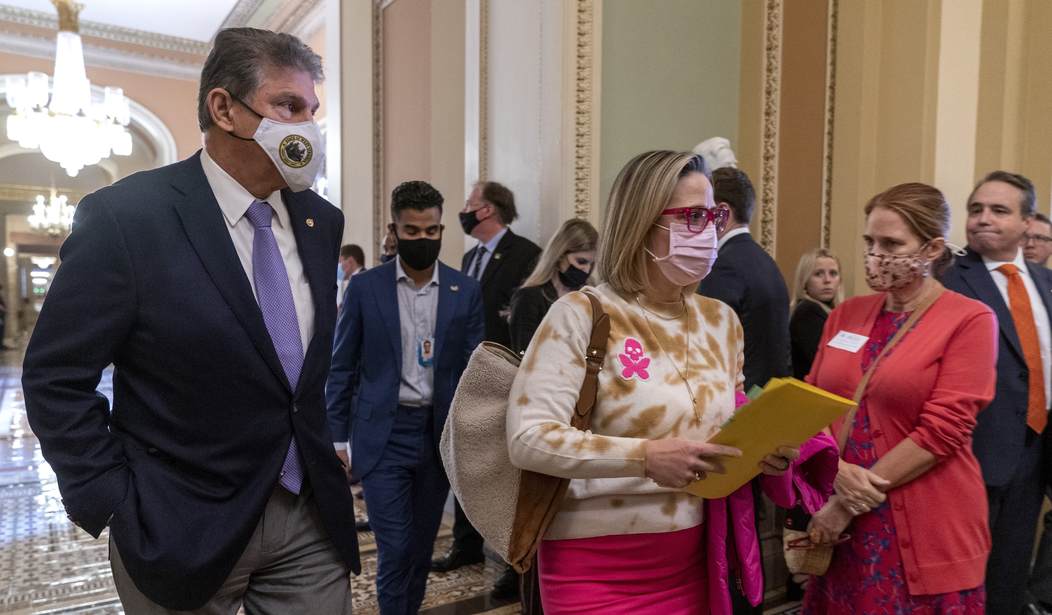Last December, West Virginia Senator Joe Manchin blew up negotiations over a $1.7 trillion Build Back Better bill, largely because he believed it to be inflationary and unnecessary.
Now that Manchin looks like a genuine soothsayer for his warnings about inflation, Democrats are far more willing to listen to him — enough so that Majority Leader Chuck Schumer has once again begun direct talks with Manchin on a much-slimmed-down Build Back Better bill.
They’re calling it the “Build Back Better Late Than Never” bill. Indeed, it’s the Democrats’ last chance to craft a bill that would take action on climate change, taxing the rich, reducing the deficit, and lowering prescription drug costs.
There are signs, however, that talks are getting more specific: Manchin and Schumer are going line by line over what a possible deal would look like, building a potential agreement from the ground up rather than rehashing disagreements from last year, according to Democrats familiar with the matter. Much of the recent focus is on energy policy; Manchin indicated he will not support a bill that sends direct payments to companies that produce clean energy for consumer use, also known as “direct-pay,” drawing an important line in the negotiations.
Manchin was the first Democratic senator to warn about potentially rising inflation and was widely dismissed by his colleagues last year when he raised those concerns. With inflation now at its highest rate in 40 years, any conversation about spending more money will be a difficult sell with him, and he wants deficit reduction in the package, a person close to him said.
The tax increases on the rich would bring in some new revenue, although whatever amount Democrats claim it will raise will be bogus. The rich didn’t get rich in America by paying taxes. History has shown tax increases can be mostly avoided.
And the prospect of billions of dollars in new revenue from a prescription drug program is also overstated, although it will depend on how the plan is eventually administered.
In short, whatever deficit reduction is included in the new bill will largely be smoke and mirrors, and no real savings.
Schumer is hoping he can bring up the bipartisan gun safety package for a vote next week, clearing the decks for bringing a Democratic bill to the Senate floor in July or August. By using what’s known as budget reconciliation, the measure would need just a simple majority of votes in the 50-50 Senate, and can avoid a GOP filibuster.
Making that happen requires plenty of closed-door efforts — Schumer is also working with the Senate parliamentarian to ease consideration of a potential party-line spending bill. The GOP would be able to challenge specific provisions once there is final bill text, possibly knocking out portions of the bill if they run afoul of the chamber’s strict budget rules. But Schumer is trying to make all the preparations he can should he and Manchin come to an agreement before Sept. 30, when the current budget reconciliation protections expire.
No one should be surprised that Manchin wants to get a Build Back Better bill signed, sealed, and delivered in some form for his friend and fellow Democrat Joe Biden before September. Manchin has always made that clear — that he’s a Democrat and wants to help a Democratic president.
A new bill is not likely to give a significant boost to Biden’s numbers or the Democrats’ midterm prospects. But it may stop the bleeding and allow the Democrats a small hope to avoid a catastrophic outcome to the midterms.








Join the conversation as a VIP Member